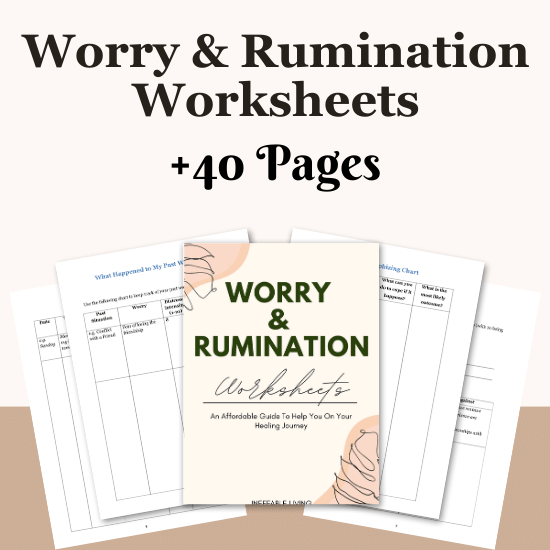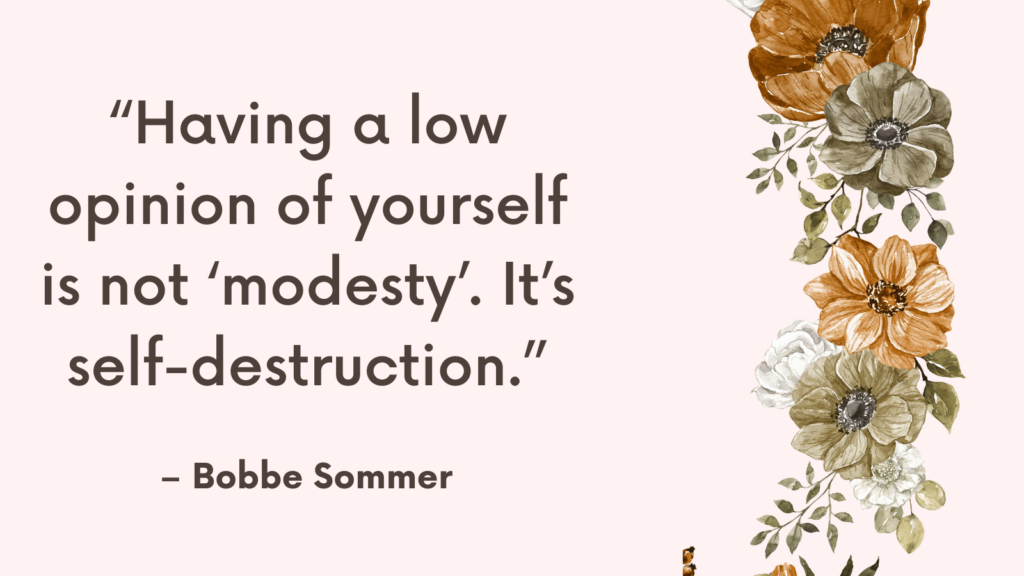This post contains some of the best tips on overcoming anticipatory anxiety.
What Is Anticipatory Anxiety?
Anticipatory anxiety is a common psychological phenomenon characterized by apprehension or worry about an upcoming event or situation.
It involves experiencing heightened levels of stress, fear, or unease in anticipation of a future event, often accompanied by intrusive thoughts and physical symptoms of anxiety.
Individuals may experience anticipatory anxiety in various contexts, such as before a performance, a significant life change, a medical procedure, or a challenging social interaction.
Signs of Anticipatory Anxiety
Anticipatory anxiety is characterized by intense worry and fear about upcoming events or situations.
It can manifest in various physical, cognitive, emotional, and behavioral signs. Here are some common signs of anticipatory anxiety:
1. Physical Symptoms:
– Increased heart rate or palpitations
– Rapid breathing or shortness of breath
– Muscle tension or tightness
– Sweating or clammy hands
– Upset stomach or gastrointestinal discomfort
– Headaches or migraines
– Dizziness or lightheadedness
– Fatigue or exhaustion
2. Cognitive Symptoms:
– Excessive worry or rumination about the future event or situation
– Intrusive thoughts or catastrophic thinking about potential negative outcomes
– Difficulty concentrating or focusing on tasks unrelated to the anticipated event
– Racing thoughts or difficulty controlling thoughts
– Heightened vigilance or hypervigilance to potential threats or dangers
– Mental rehearsals or constant mental preparation for the upcoming event
Related: Future Tripping: Top 9 Ways to Avoid Future-Tripping
3. Emotional Symptoms:
– Intense fear or dread about the upcoming event
– Restlessness or irritability
– Feeling overwhelmed or out of control
– Nervousness or apprehension
– Mood swings or emotional volatility
– A sense of impending doom or gloom
– Feelings of self-doubt or low self-esteem related to the anticipated event
4. Behavioral Symptoms:
– Avoidance behaviors, such as canceling plans or withdrawing from social activities related to the anticipated event
– Procrastination or delay in preparing for the event due to anxiety
– Seeking reassurance or support from others about the upcoming event
– Sleep disturbances, such as insomnia, nightmares, or restless sleep
– Changes in appetite or eating patterns, including overeating or loss of appetite
– Nail-biting, fidgeting, pacing, or other nervous habits
– Difficulty initiating or completing tasks associated with the event due to anxiety
It’s important to note that experiencing some of these signs does not necessarily indicate a diagnosable anxiety disorder.
However, if anticipatory anxiety significantly impacts daily functioning, causes distress, or lasts for an extended period, it may be beneficial to seek professional help for further evaluation and support.
Understanding these signs can help individuals recognize anticipatory anxiety and take proactive steps to manage and cope with it effectively.
Related: How to Stop “What If” Anxiety Thinking?
Tips on Overcoming Anticipatory Anxiety
Anticipatory anxiety, also known as pre-event or pre-performance anxiety, can be a challenging experience, but there are evidence-based strategies that can help individuals manage and overcome this type of anxiety. Here are some tips on overcoming anticipatory anxiety:
1. Identify and Challenge Unhelpful Thoughts:
Anticipatory anxiety is often fueled by exaggerated worries and catastrophic thinking about the upcoming event or situation.
It’s important to identify and challenge these unhelpful thoughts.
Ask yourself: What evidence do I have for this catastrophic outcome? Am I underestimating my ability to cope with the situation?
Challenging distorted thoughts can help reduce the intensity of anticipatory anxiety.
2. Practice Mindfulness and Relaxation Techniques:
Engaging in mindfulness meditation, deep breathing exercises, progressive muscle relaxation, or other relaxation techniques can help calm the mind and body, reducing the physical and psychological symptoms of anticipatory anxiety.
Mindfulness practices can also help individuals stay present-focused and reduce excessive worrying about the future.
3. Develop Coping Strategies:
Identify coping strategies that work for you.
This may include creating a realistic and positive self-talk script to mentally prepare for the upcoming event, visualizing a successful outcome, or utilizing grounding techniques to stay connected to the present moment.
Having a toolbox of coping strategies can empower individuals to manage anticipatory anxiety more effectively.
4. Gradual Exposure:
Gradual exposure to the anticipated event or situation can help desensitize individuals to the anxiety-provoking triggers.
This exposure should be done in a controlled and supportive environment, preferably with the guidance of a mental health professional trained in exposure therapy.
5. Set Realistic Expectations:
Recognize that perfection is not attainable, and it’s okay to make mistakes or experience challenges during the anticipated event.
Setting realistic expectations can alleviate some of the pressure and reduce anticipatory anxiety.
6. Engage in Behavioral Activation:
Actively participate in pleasurable and meaningful activities leading up to the anticipated event.
Engaging in enjoyable activities can shift the focus away from the anxiety and improve overall well-being.
Related: Impulsive vs Intrusive Thoughts (& How to Manage Them)
7. Seek Social Support:
Talking to trusted friends, family members, or mental health professionals about anticipatory anxiety can provide a sense of reassurance and perspective.
Knowing that you have a support system can alleviate feelings of isolation and distress.
8. Practice Self-Compassion:
Be kind to yourself. Recognize that experiencing anticipatory anxiety is a common human experience and does not diminish your worth or capabilities.
Treat yourself with the same compassion you would offer to a friend experiencing similar challenges.
9. Develop a Pre-Event Routine:
Establishing a consistent routine leading up to the anticipated event can help create a sense of predictability and control.
This routine can include physical exercise, time for relaxation, positive affirmations, and adequate rest.
10. Focus on the Present and Action:
Shift the focus away from the future-oriented worries and redirect attention to actionable steps that can be taken in the present moment to prepare for the anticipated event.
Focusing on concrete tasks can reduce rumination and anxiety.
Related: Impulsive vs Intrusive Thoughts (& How to Manage Them)

FAQs
Why does it feel so intense, even when nothing has happened yet?
Your brain doesn’t always distinguish between real and imagined threats. When you mentally rehearse a stressful situation, your body reacts as if it’s happening now — releasing stress hormones, tightening muscles, and triggering the fight-or-flight response. The fear becomes physical even though the danger is imagined.
Can anticipatory anxiety cause physical symptoms?
Yes — common physical symptoms include a racing heart, upset stomach, difficulty sleeping, nausea, tension headaches, chest tightness, or shakiness. These physical sensations can reinforce the belief that something is truly “wrong,” adding to the fear loop.
Why do I feel anxious even if I’ve done the same thing before?
Repetition doesn’t always erase fear — especially if you had anxiety the last time. Your brain may have formed an association between the event and the anxious feeling, creating a pattern of expecting the worst even when things usually go well.
Is avoidance helping or hurting?
Avoiding anxiety-triggering situations may bring short-term relief, but in the long term, it makes the anxiety worse. Avoidance teaches your brain that the feared event is dangerous — reinforcing the belief that you can’t handle it. Exposure, in small steps, is more effective.
Conclusion
Overcoming anticipatory anxiety involves a combination of cognitive-behavioral techniques, relaxation practices, social support, and gradual exposure.
By implementing these strategies and seeking professional help if needed, individuals can effectively manage and reduce the impact of anticipatory anxiety, allowing for a more adaptive and confident approach to upcoming events and situations.



